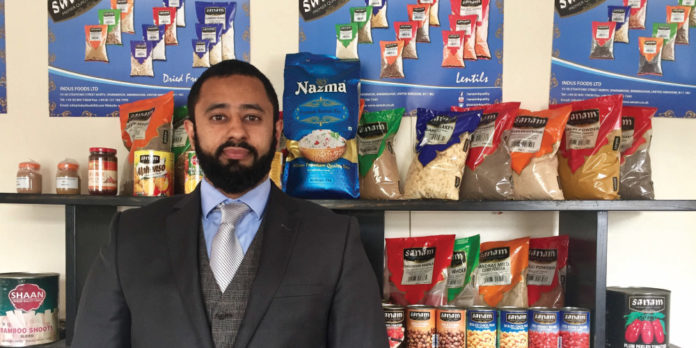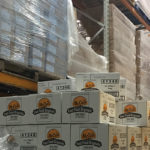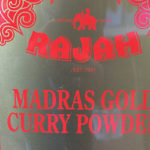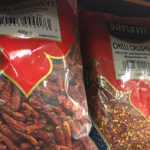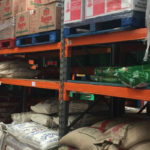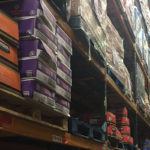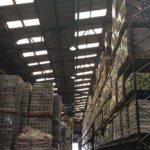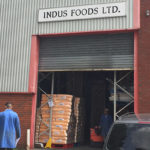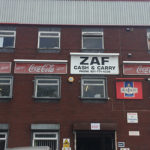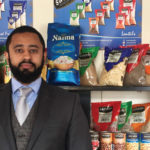Priyanka Jethwa talks to a Midlands wholesaler that has the whole world at its feet.
The year was 1962. Having seen a huge gap in the market for ethnic foods, Amir Chaudhary’s grandparents opened one of the UK’s first halal butchers and greengrocers on Ladypool Road, in Sparkbrook, Birmingham – inside the now famous ‘Balti Triangle’.
The shop rode the crest of the wave of growing demand for spicy food, and eventually led to the formation of the wholesale business Indus Foods in 1972.
Indus Foods, of which Chaudhary is operations director, now serves as a far-reaching distribution hub, while Zaf Cash & Carry is its cash & carry business.
Despite having a strong base of customers in the Midlands, the business isn’t myopic in its outlook. Chaudhary says: “We started importing in 1975, and set up our own processing and packaging production line here on-site, importing products initially from the sub-Asian continent. We now import from 152 countries. We source from the best areas of the world, including almonds from California and sultanas from Iran.
“Our distribution hub covers the whole of the UK and Ireland, in addition to exporting to Europe. We have had long-standing relationships with customers in Norway and Greece since the 1970s, and we’re just about to open an account in Italy.”
Pressed on whether the business could even go further afield, Chaudhary says: “In regards to the Americas, I think we have to think about what value we can bring as a British business to those markets. While the UK market is great for a Texas BBQ, what do we have going back that way?”
Indus and Zaf specialise in ethnic lines of ambient, chilled and frozen goods, serving around 5,000 retail and foodservice customers in total. Own-label brands include Sanam (spices, lentils, rice, dried fruits and nuts) and Shaan (tinned food, frozen, rice and bulk fruit and nuts). It also sells a range of non-food items.
Chaudhary says that employees travel worldwide, which keeps them aware of new ethnic brands the company could stock and educates them about what is on trend.
One of its latest ventures is Falak rice, a popular Pakistani brand to which Indus has obtained exclusive UK distribution rights.
“Bringing agencies into the UK for distribution is something that we’ve always done,” Chaudhary explains. “A lot of agencies approach us, so we’re in a unique position where we can say, ‘No, we don’t have space’ – 20 years ago, we couldn’t have afforded to do that.”
A major trend the wholesaler is seeing in Birmingham is a rise in Asian, South Asian and Italian fine dining, with more themed, premium restaurants and pop-up eateries in particular.
Another trend that has caught Chaudhary’s eye is Chicken Parmesan. “It’s a big thing here in Birmingham at the moment,” he says. “It’s something that has always been popular up north in places like Newcastle and now we’re seeing it boom here. A lot of pizza shops and takeaways are selling it.
“This necessitates new packaging, new cheeses and so on, to help customers with the innovation. Therefore, we’re finding a slight decline at the value end as people move upstream.”
Chaudhary says that the market is moving to cater for new, unique tastes such as this. One of his customers is opening up three more of its chicken-themed shops, which sell dishes such as sweet waffles with chicken and dressing, after the overwhelming success of its first shop. Another of his customers has opened a shop offering Krispy Kreme chicken burgers, riffing on the globally-famous doughnut brand.
For Chaudhary and the Indus team, keeping on top of such trends – no matter how fleeting – is vital in order to thrive, rather than merely survive. Chaudhary notes that while Indus still primarily serves fast food and takeaways operating with ‘safer’ products at the value end of the market, discerning consumers increasingly expect an experience or ‘theatre’ as part of the package.
Several of Indus’ customers are ranked in the top positions on the Just Eat online ordering platform and the business plans to ensure they remain there by continuing to develop and innovate.
Chaudhary says that a few years ago, not enough was being done in wholesale to take advantage of technology, but now the industry is finally catching up. Indus currently spends £5,000-£6,000 per year to add new features to its systems, for example.
He adds: “When I joined six years ago, our customer base still consisted of the previous generation. They weren’t used to technology and weren’t interested in receiving emails. But now, as new generations take over, change is happening. The industry is moving in the right direction – it needs customers to catch up.”
Indus doesn’t have an e-commerce presence, but it’s now considering the options available. Chaudhary adds: “We’re also looking to social media. It’s something we did do, but we found that if anything, we were too early and our customers just weren’t there yet. But now we’re having customers asking us, ‘Can you put this offer up on your Facebook page?’ So it is a vital tool for wholesalers.”
Indus has been a member of the Today’s Group for several decades. Chaudhary pinpoints an example of just how valuable this membership has been to his business: “A few years ago we had an issue with the railway line adjacent to our site,” he says. “I got nowhere with Network Rail and the government, so I reached out to Today’s. They contacted Network Rail on our behalf and the following week, an engineer was out fixing the problem.”
Chaudhary says Today’s business development manager Andrew Kirby has been particularly helpful. “He makes sure that we’re aware of what Today’s is doing so we can take an active role as a member. He also makes sure that if we have feedback, it’s relayed back to the management.”
Chief among Indus’ plans going forward is investment in training and development for its employees: “We’re investing in our middle managers and team leaders to make sure they have the right skillset to take us and the industry forward,” Chaudhary says. “It’s the only way to grow.”
60 seconds with Amir Chaudhary
What is the best piece of advice you can offer?
Perseverance is key, particularly with networking. There will always be someone willing to give you the time of day. That person will become the sounding board for your career.
What is your philosophy about work?
Have fun. If you’re not doing something that you enjoy, you’re not in the right type of work.
Whom do you most admire and why?
My father. He’s been working since he was a kid. He used to tell me stories of cycling across Birmingham to go to his apprenticeship. His work ethic is very unique.
What do you get up to in your spare time?
I spend time with my family as much as I can. I’ve got two daughters and we’ll go to the park or soft play; when the weather is nice, we’ll plan a day out in Birmingham.
